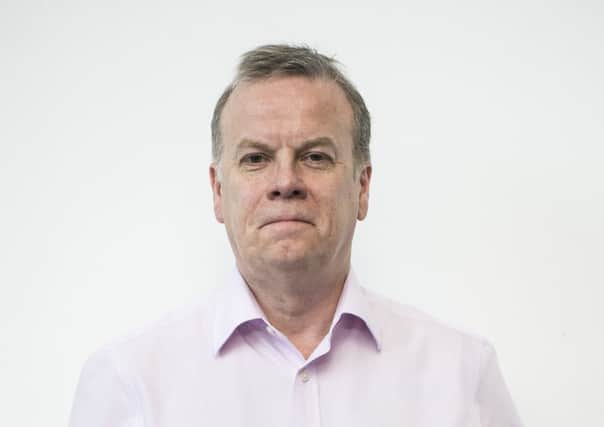Comment: Office space race helping city mind gaps


The property market is in recovery, an early indicator of a broader economic revival, and in Edinburgh in particular the space race is hotting up.
New developments are coming forward almost weekly: from Caltongate to the long-empty Morrison Street site; today we report (page 37) that a gap site on Leith Walk has been sold, and that a “new town” is to be built in the south-east, indicating the growing value of land beyond the city centre.
Advertisement
Hide AdAdvertisement
Hide AdWith the backers of the St James shopping centre ready to go ahead with transforming it from a dated eyesore into something of which the city can be proud, it is clear that the capital is on something of a roll. Of course, as most of the large brownfield, or former industrial, sites are built on it will put pressure on the green belt.
Speculative office building has been in short supply, but developers are encouraged by the growing demand from tenants for quality accommodation. Lettings are already higher than before the financial crisis in 2007 and Montagu Evans says the momentum built up last year has continued into the first quarter of 2014, with take-up almost 50 per cent up on the same period in 2013.
More firms, but let’s avoid more flops
Companies are being created in record numbers, according to the latest data, which has to be a source of some pride to those entrepreneurial evangelists who continue to campaign for a higher business birth rate.
It has to be good for the country that it can sustain more businesses and good for the economy if it can evolve from its dependency culture into one that generates self- sustaining businesses driven by people with ideas and ambition.
Of course, there is always some concern that the growth in start-ups is attributed less to personal desire and more to necessity. When jobs are hard to come by, it is the only option available apart from unemployment, returning to college, or back-packing around the world.
Many of these start-ups turn out to be one-man band “lifestyle” businesses with little or no growth potential and, in many cases, no longevity. It is no good creating more firms only to see an equally high rate of failures.
It has to be hoped (rather than assumed) that the rising numbers have more to do with growing confidence in taking the plunge among those who have been too fearful of the risks, and the wider availability of finance and general support.
Schemes such as Entrepreneurial Spark and the growing number of wealthy individuals ready to become angel investors and provide personal mentoring are playing a key role in changing attitudes and providing a safety net.
Bolland will have to wait for his next bonus
Advertisement
Hide AdAdvertisement
Hide AdMarks & Spencer boss Marc Bolland will have to do without his bonus for the first time since he joined the firm.
It is no bad thing. The retailer’s profits slipped for the third successive year, as predicted, and while M&S is hardly in crisis, the chief executive’s promised turnaround is taking its time coming.
When it arrives, he can have his bonus back.
TWITTER: @TerryMurden1